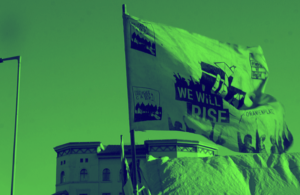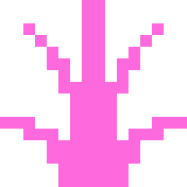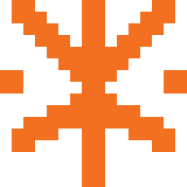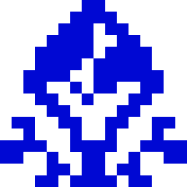


A decolonial infrastructure for artistic research and pedagogies in Cape Town, Windhoek, Nairobi, Kigali, Dar es Salaam, Bagamoyo, Dakar, Sinne Saloum, Joal-Fadiouth Berlin & online.
…Then the Jackal came where the Sun was sitting. And said: ‘Oh what a pretty girl!’ And he said: ‘Come let me carry you on my back, my daughter!’ And he took her. Then, after he carried the Sun she burned him. ‘O, my daughter, in the name of God let me go, so that I can take you off. Get down first I want to go and urinate’. Then the Sun said: ‘No, I was sitting on the ground.’ Then the Jackal ran and went under a tree. And he dug around the root of the tree. And he went in. Then the Sun said: ‘No, I will not get off. You carried me on your back.’ Then he said: ‘Oh my sister, my back is burning out and I am powerless. I carried you on my back just because of love, but I now realize something about you, so get down from me first.’ At that moment the Sun replied to the Jackal and said: ‘No, I will not get off. I will sit on your back. You carried me on your back. As I am here when my brothers carry me, they don’t ask me to get off their backs. They take me off their backs. Am I not a pretty girl of yours? Why do you want to take me off now? Let us get to your home.’ ![]()
The Jackal and the Sun is a tale about how the Jackal got its black back. It was transformed many times as it was passed on orally and travelled from the Arabic regions and North Africa and, with influences of the European fable Reynard the Fox, arrived to Southern Africa. While there are as many versions of this story as there are its tellers, the main plot tells of a Jackal who either steals or is deeply enchanted by the beautiful Sun. When the Jackal then carries the Sun, the forceful rays of light eventually burn the Jackal’s back.
The tale of the Jackal trickster getting their back burned from trying to carry the Sun away continues to appear and intervene in the colonial archives of German colonization in Namibia. The voices of Haneb and Wilfred Tjueza, young farmers in Namibia, are recorded telling the story in 1931 to the ears and sound recording device of a white anthropologist.
WHEN THE JACKAL LEAVES THE SUN revisits this tale, inspired by a letter exchange of two preeminent Namibian anticolonial resistance leaders. Writing in 1890, Hendrik Witbooi, leader of the Nama people’s resistance against German imperialism, in a letter to Ovaherero leader Maharero kaTjamuaha in 1890, employed the tale to express his grave concern against signing the so-called Protection Treaty with the German Empire:
“Surrendering yourself over to the government by another, by White people, […] will become to you like carrying the sun on your back.” Hendrick Witbooi in a letter to Maharero kaTjamuaha, 30 May 1890 ![]()
German colonial agreements were one-sided and the normative boundaries they sought to establish were either ignored or overstepped by the colonizers, at times with genocidal violence. The legacy of German colonialism continues to affect the south-western African lands now called Namibia, among other places that the German Empire violently colonized. The intersecting systems of domination live on in the economic, cultural and social structures German, and European colonialism more broadly, has brought about. Restitution and repatriation of ancestral bodies, stolen land and cultural artifacts, as well as properly negotiated and adequate reparations for Germany’s colonial crimes, are still largely absent. The trauma of colonialism persists, with stolen bodies still held in German institutions, robbing them and their descendants of a proper burial and memorial.
“Germany is in violation of its human rights obligations under the International Convention on the Elimination of All Forms of Racial Discrimination. The repatriation of ancestral human remains is a human and fundamental right of those persons whose human remains are stored in the archives of German institutions in an inhumane manner, and of their descendants.” – Sarah Imani, Legal Advisor, European Center for Constitutional and Human Rights (ECCHR) ![]()
![]()
![]()
What does it take, for the Jackal, to leave the Sun?
Inspired by preeminent anti-colonial resistance leaders and current practices of liberation and repossession, WHEN THE JACKAL LEAVES THE SUN takes up the tale as a representation of struggles and resistance of indigenous African communities against German colonization. Like the Jackal’s marks from the Sun, our cultures and ecologies, our relationships and economies are marked by colonialism. What does it take, for the Jackal, to leave the Sun?
With the arrival of German colonizers, anti-colonial struggle begun, too, in the form of organized resistance by the Ovaherero, Nama, San and Damara people against their dispossession and displacement and through the formation of counter-narratives carrying African cosmologies like in Hendrik Witbooi’s letter.
“It is not that Europe has denied its colonial history – that would be too crude. It is instead that Europe has developed a way of telling the story of its colonial history that ultimately seeks to erase that history.” – Chimamanda Ngozi Adichie ![]()
Inheriting the tradition of anti-colonial struggle and resistance, WHEN THE JACKAL LEAVES THE SUN connects an intersectional spectrum of artists, curators, activists, lawyers, cultural practitioners and collectives to develop an account of Pedagogies of Repossession. Through co-developing and facilitating a process toward Pedagogies of Repossession, WHEN THE JACKAL LEAVES THE SUN seeks to counter persistent colonial violence through artistic and political means, fostering memory, cultural education, and spiritual healing.
Challenging dominant institutional discourses of repair, WHEN THE JACKAL LEAVES THE SUN brings together artists, activists, curators, lawyers, and cultural practitioners to create interventions and pedagogical tools that currently come to life in our six Chapters. Grounded in radical Black, queer and feminist positions, WHEN THE JACKAL LEAVES THE SUN creates an independent and transterritorial infrastructure and platform for artistic and transdisciplinary collaborations on memory, cultural and educational work from summer 2022 to spring 2024 in Cape Town, Windhoek, Nairobi, Kigali, Dar es Salaam, Bagamoyo, Dakar, Sinne Saloum, Joal-Fadiouth, Berlin & online.






